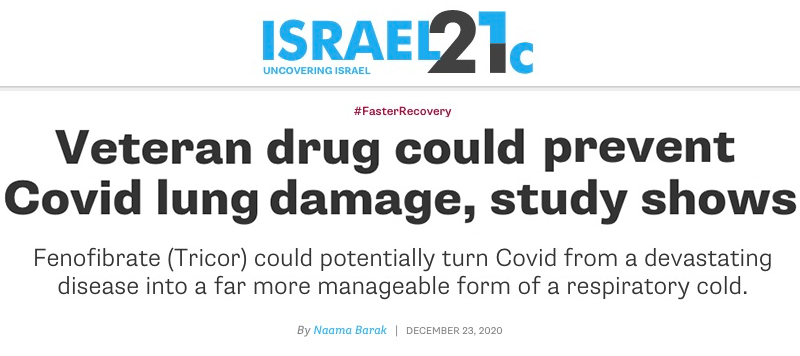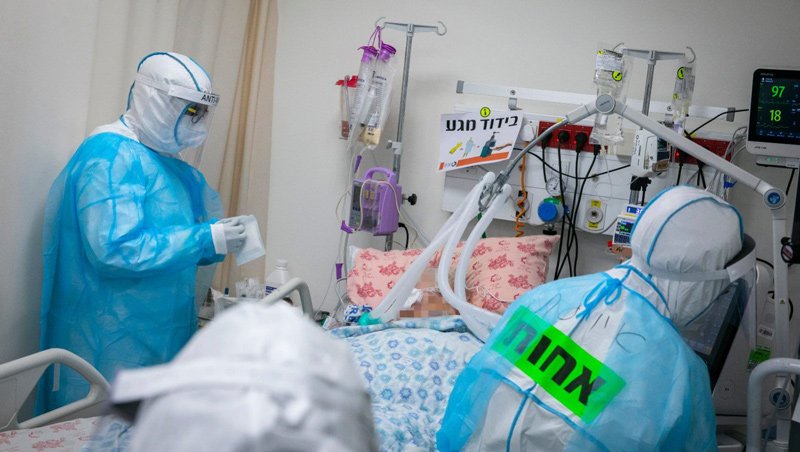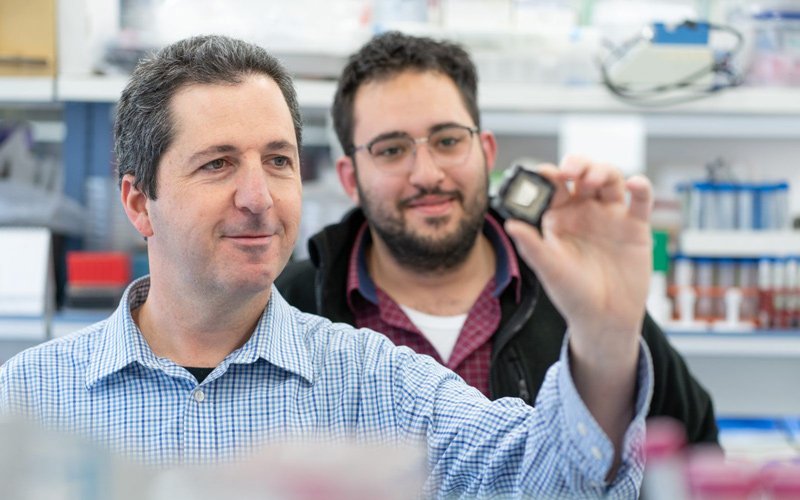

Initial data from a new study shows that a well-established drug could prevent lung damage in Covid-19 patients, potentially reducing its severity and mortality rates and turning it from a devastating disease into a far more manageable form of a respiratory cold.
Back in July, a study led by the Hebrew University of Jerusalem demonstrated that Covid-19 inhibits the effective breakdown in lungs and that the resulting buildup of fats in lung cells play a critical role in the deterioration of patients’ condition.
Since then, data from 1,500 Israel-based coronavirus patients on a regimen of drugs designed to reduce the fatty buildup in lung cells has shown that fibrates – drugs designed to lower triglycerides (fats) in the blood – helped patients recover quickly.
“We showed that the human lungs responded to the SARS-CoV-2 virus by completely changing their metabolism, causing a major buildup of fats in lung cells. Our findings show that this unhealthy fat buildup is a critical factor in Covid-19 patients’ deterioration,” explains Prof. Yaakov Nahmias.
“Patients taking fibrates that work directly to breakdown fats recovered fast from the disease, while those taking medications that build fats like thiazolidinediones, showed greater lung damage and mortality,” he added.

Clinical studies are to begin at Barzilai Medical in Israel’s south and in clinical centers in the United States, South America and Europe to further determine the efficacy of treatment with fenofibrate (Tricor), an FDA-approved drug that has been on the market since 1975.
This is one of several widely available and inexpensive drugs that could help treat the effects of Covid-19.
“Even as we see the introduction of numerous vaccines intended to reduce the transmission of the disease and protect vulnerable populations, this drug can help the direct treatment of the virus and reduce its severity and mortality,” says Prof. Shlomo Maayan, the director of the Department of Infectious Diseases at the Barzilai.“We hope to see the first results of the clinical phase of this study in the coming months.”